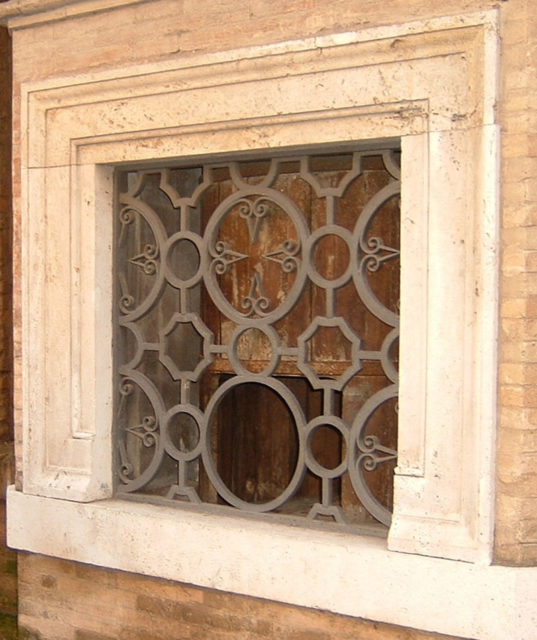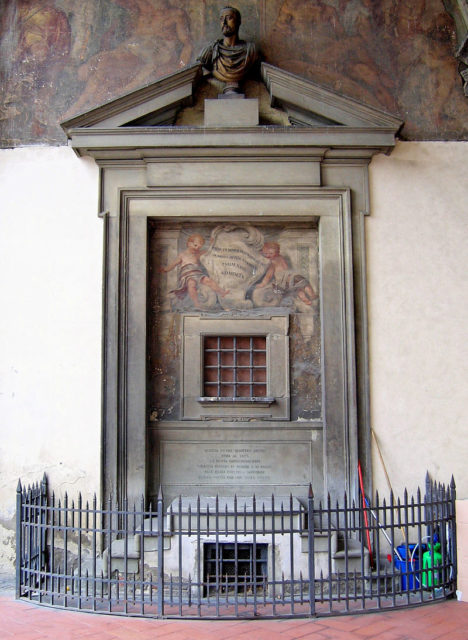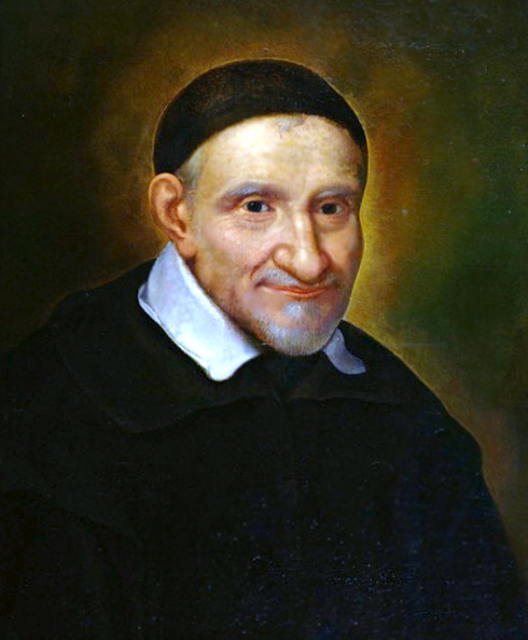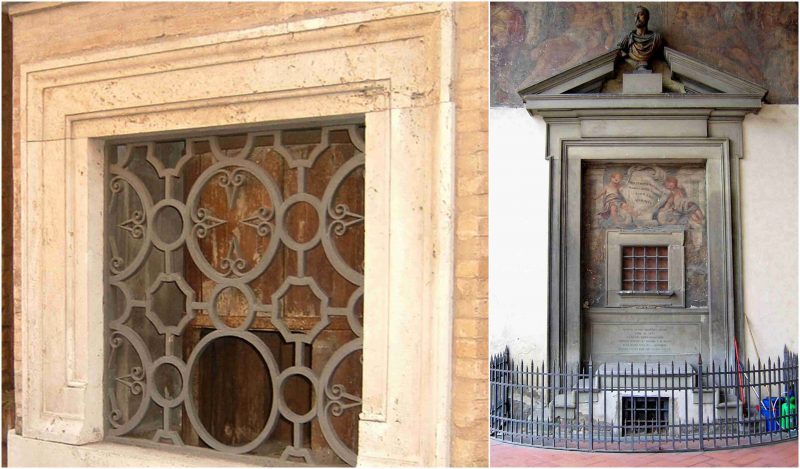A foundling wheel is a small crib set within an opening on the outside wall of a church or hospital, similar to a revolving door.
An unwanted baby was laid in the crib through the opening, and the wheel would be turned so as to place the baby safely inside the building.
In medieval times, child abandonment was fairly common. In 1198, Pope Innocent III was distressed by the number of infants that were drowned in the Tiber River, and he declared that foundling wheels should be installed so women could anonymously leave their unwanted child in the care of a church or hospital, instead of killing it.

At first, Foundling wheels were used in Italy; then the practice spread throughout Europe. The first foundling wheel in Germany was placed in the wall of an orphanage in 1709; it remained in service for only five years because the orphanage could not afford to take care of the amount of abandoned babies being handed over.

Father Vincent de Paul, a Roman Catholic priest, canonized in June of 1737, instituted the first foundling home in 1638 in Paris. After a royal decree, the wheels were legalized in 1811 for Paris hospitals. As with the German foundling wheels, the number of abandoned babies rose to unmanageable proportions; in 1863, the devices were replaced by admissions offices, where mothers could safely give up their children. The wheels were finally discontinued in 1904 in France and today, French policy allows women to anonymously leave their babies at the hospital where they gave birth.
The wheel put in the Santa Casa de Misericordia hospital, in São Paulo in 1825, was declared unsuitable for the modern community and was removed in 1949. The Santo Spirito hospital in Vatican City is the home of a foundling wheel from medieval times that was used until the 19th century.

In Great Britain, foundlings were raised in orphanages subsidized by the Poor Tax and in 1741, a home for foundlings in London was built. In 1730, a foundling wheel was placed in the Foundling Hospital and Workhouse in Dublin but was removed in 1826 because of the high rate of child mortality. After foundling wheels had been discontinued in the late 19th century, many were replaced by the baby hatch in the 1950s.
A baby hatch is similar to the founding wheel in that babies can be left anonymously, and once the baby is in, sensors alert attendants that a baby has been left. The mother can reclaim the child with no repercussions up until a set amount of time decided by the local laws, after which the baby is put up for adoption. Germany, for instance, allows up to eight weeks to reclaim a child.
In the United States, rules regarding turning in unwanted children are governed by each state. In Ohio, infants can be turned into the Safe Baby program run by individual hospitals. Texas was the first state to enact a safe-haven law, in 1999. California has a Safely Surrendered Baby law, and Nebraska instituted the Safe-Haven Law in 2008. The National Safe Haven Alliance, a non-profit organization, based in Occoquan, Virginia, has a list of individual state laws on their website and there is also an eBay store where all proceeds go to the National Safe Haven Alliance.

Opponents of the safe baby system claim the laws undercut the child welfare laws already in place and encourage women to ignore the rights of the father. According to the website Religious Tolerance, Tom Atwood of the National Council for Adoption remarked, “Just how many babies do these laws have to rescue from death in a dumpster in order to be worthwhile?”
Read another story from us: Baby farmer Amelia Dyer was a serial killer who killed infants
Baby hatches have appeared in several forms of media; a Brazilian film directed by Maria Emília de Azevedo, Roda Dos Expostos (“Wheel for Exposed Ones”), won an award for “Best Photography” at the Festival de Gramado in 2001. A historical novella, The Lady of the Wheel by Angelo F. Coniglio, is set in 19th century Sicily.
